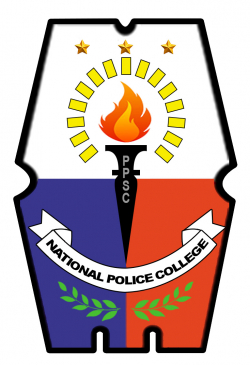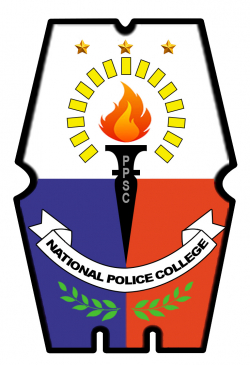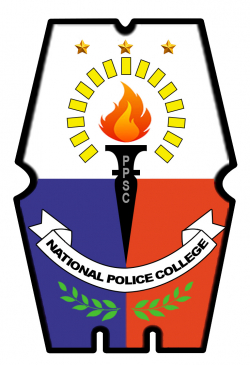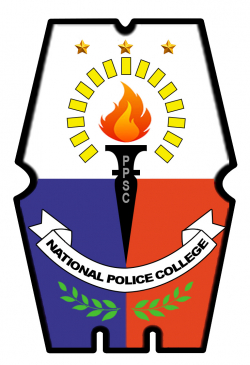“Dismissal of Drug Cases Failed in Courts in Quezon Province”

Type
Thesis
Authors
PCPT LEONILO A ANCHETA, PCPT ROY M CUEVAS, PCPT DIANNE KHRISTINE E JANGALAY, PCPT GERRY G MALIPOL ( PCPT JASON E ROMUALDO, PCPT BRYAN T TACAZON, PCPT LINDLEY S TIBUC, PCPT ERIC L VELUZ, PCPTJOHN C VILLAFUERTE, AND PCPT NICANOR F VILLAREAL )
Category
PSOAC
[ Browse Items ]
Abstract
INTRODUCTION
On July 1, 2016, the Philippines National Police focused on the anti-illegal drug campaign ‘Double Barrel”, a two-pronged approach in the driven against the worsening illegal drug situation in the country and the increasing number of drug personalities and their networks. It comprises two main components: Oplan Tokhang, the lower barrel approach, and Oplan HVT, the upper barrel approach aimed towards High-Value Targets. This was launched under the marching order of President Rodrigo Duterte. The relentless campaign to wipe out illegal drugs brought by intensified police intervention effectively caused a decline in crime rate.
Despite the success if the anti-illegal drug campaign of the PNP, it is still being criticized because of issues of incompetence, corruption, ang involvement in illegal drugs of some PNP personnel. Among the grounds for the dismissal of the case were attributed to the following: procedural irregularities, planting of evidence/fabrication, chain of custody failure to attend court hearings, inconsistent testimonies, failure of the prosecution to present evidence/failure to prosecute, insufficient of evidence due to illegal warrant served, search and seizure, Hence, illicit drug trafficking continuous to be a perennial problem wreaking havoc on the society.
The topic on the Common Grounds for the dismissal of drug cases filed is not only the main concern of a certain place but the concern of the country in general. The problem of illegal drugs has become the top priority of the Philippines government as it becomes the threat to the Philippine economic and social progress. Drug cases have taken over Philippines courts over the last 9 years and only 12% of the 289,295 drug cases at the lower courts were disposed of in 2017. A big problem that’s courts just can’t keep up. Prosecution success rate of 50.2% and in 2017, it improved slightly to 52.5%
There are around 2,600 regional trial courts tasked to handle 289,295 drug cases along under the Dangerous Drugs Act, trial of the drugs-related case has to be finished not later than 60 days from the filling of information.
Republic Act 9165or the Dangerous Drugs Act is the blueprint of the Philippines government against illegal drugs. The law declared that “the government shall pursue an intensive and unrelenting campaign against the trafficking and use of dangerous drugs and other similar substances.” It also mandated the division of labor among government agencies.
According to the Dangerous Drug Board (DDB) (the government agency mandated to formulate policies on illegal drugs in Philippines), there are 1.8 million current drug users in the Philippines, and 4.8 million Filipinos report having used illegal drugs at least once in their lives. More than three –quarters of drug users are adults (91%), males (87), and have reached high school (80%). More than two thirds (67%) are employed. The most commonly used drug in the Philippines is a variant of methamphetamine called shabu or “poor man’s cocaine.” According to a 2012 United Nations report, the Philippines had the highest rate of methamphetamine abuse among countries in East Asia: about 2.2% of Filipinos between the ages 16-64 years were methamphetamines user.
When Philippines Rodrigo R. Duterte assumed office on June 30, 2016, his government launched an unprecedented campaign against illegal drugs. He promised to solve the illegal drug problem in the country, which, according to him, was wreaking havoc on the lives of many Filipinos families and destroying the future of the Filipino youth. He declared a “war on drugs” targeting users, peddlers, procedures and suppliers, and called for the Philippine criminal justice system to put an end to the drug menace.
During the first six months of the Duterte Presidency (July 2016-January 2017), PNP conducted 43,593 operations that covered 5.6 million houses, resulting in the arrest of 53,025 ‘drug personalities,” and a reported 1,189,462 persons “surrendering” to authorities, including 79,349 drug dealers and 1,110,113 drug users. Government figures show that during first six months of Duterte’s presidency, more than 7,000 individuals accused of drug dealing or drug use were killed in the Philippines, both from legitimate police operations and vigilante groups.
On July 1, 2016, the Philippines National Police focused on the anti-illegal drug campaign ‘Double Barrel”, a two-pronged approach in the driven against the worsening illegal drug situation in the country and the increasing number of drug personalities and their networks. It comprises two main components: Oplan Tokhang, the lower barrel approach, and Oplan HVT, the upper barrel approach aimed towards High-Value Targets. This was launched under the marching order of President Rodrigo Duterte. The relentless campaign to wipe out illegal drugs brought by intensified police intervention effectively caused a decline in crime rate.
Despite the success if the anti-illegal drug campaign of the PNP, it is still being criticized because of issues of incompetence, corruption, ang involvement in illegal drugs of some PNP personnel. Among the grounds for the dismissal of the case were attributed to the following: procedural irregularities, planting of evidence/fabrication, chain of custody failure to attend court hearings, inconsistent testimonies, failure of the prosecution to present evidence/failure to prosecute, insufficient of evidence due to illegal warrant served, search and seizure, Hence, illicit drug trafficking continuous to be a perennial problem wreaking havoc on the society.
The topic on the Common Grounds for the dismissal of drug cases filed is not only the main concern of a certain place but the concern of the country in general. The problem of illegal drugs has become the top priority of the Philippines government as it becomes the threat to the Philippine economic and social progress. Drug cases have taken over Philippines courts over the last 9 years and only 12% of the 289,295 drug cases at the lower courts were disposed of in 2017. A big problem that’s courts just can’t keep up. Prosecution success rate of 50.2% and in 2017, it improved slightly to 52.5%
There are around 2,600 regional trial courts tasked to handle 289,295 drug cases along under the Dangerous Drugs Act, trial of the drugs-related case has to be finished not later than 60 days from the filling of information.
Republic Act 9165or the Dangerous Drugs Act is the blueprint of the Philippines government against illegal drugs. The law declared that “the government shall pursue an intensive and unrelenting campaign against the trafficking and use of dangerous drugs and other similar substances.” It also mandated the division of labor among government agencies.
According to the Dangerous Drug Board (DDB) (the government agency mandated to formulate policies on illegal drugs in Philippines), there are 1.8 million current drug users in the Philippines, and 4.8 million Filipinos report having used illegal drugs at least once in their lives. More than three –quarters of drug users are adults (91%), males (87), and have reached high school (80%). More than two thirds (67%) are employed. The most commonly used drug in the Philippines is a variant of methamphetamine called shabu or “poor man’s cocaine.” According to a 2012 United Nations report, the Philippines had the highest rate of methamphetamine abuse among countries in East Asia: about 2.2% of Filipinos between the ages 16-64 years were methamphetamines user.
When Philippines Rodrigo R. Duterte assumed office on June 30, 2016, his government launched an unprecedented campaign against illegal drugs. He promised to solve the illegal drug problem in the country, which, according to him, was wreaking havoc on the lives of many Filipinos families and destroying the future of the Filipino youth. He declared a “war on drugs” targeting users, peddlers, procedures and suppliers, and called for the Philippine criminal justice system to put an end to the drug menace.
During the first six months of the Duterte Presidency (July 2016-January 2017), PNP conducted 43,593 operations that covered 5.6 million houses, resulting in the arrest of 53,025 ‘drug personalities,” and a reported 1,189,462 persons “surrendering” to authorities, including 79,349 drug dealers and 1,110,113 drug users. Government figures show that during first six months of Duterte’s presidency, more than 7,000 individuals accused of drug dealing or drug use were killed in the Philippines, both from legitimate police operations and vigilante groups.
Number of Copies
1
| Library | Accession No | Call No | Copy No | Edition | Location | Availability |
|---|---|---|---|---|---|---|
| NPC Library | 676559 | 1 | Yes |




